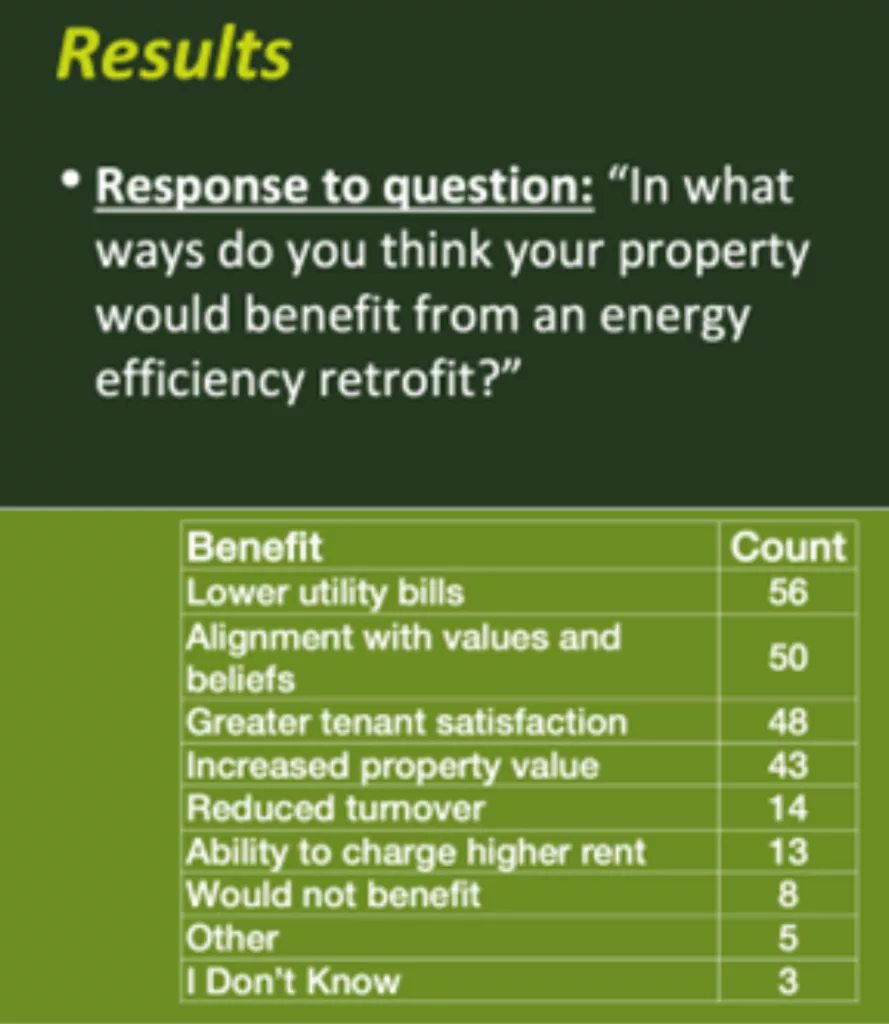Equitable energy-efficiency (EE) retrofit programs are a logical response to three intersecting crises: energy affordability, climate change, and housing affordability. Unfortunately, these programs can inadvertently displace the very populations they are designed to help.
While energy-efficiency measures offer benefits to both landlords and tenants, the split incentive discourages landlords from actively pursuing them. Building energy retrofit programs have the potential to correct this market failure but come with some risks for tenants. As demand for energy-efficiency rises, retrofitting can lead to rising rents. Lower income residents may be priced out of their homes before ever benefiting from lower utility bills.
To mitigate tenant displacement, some existing residential EE programs require participating landlords to sign covenants (contracts) that limit their ability to increase future rents for a period of years. Sounds good, but how do we get landlords to play along?
Res-Intel and Portland State are studying equity-focused EE program design by addressing a gap in our understanding of landlord motivations and their willingness to participate in an EE program with rent covenants. Using a double dichotomous choice experiment, we presented participants a hypothetical program offer of variable duration between one and 19 years. For this group, roughly 70 percent of offers were accepted. Not bad!
So, what motivates a landlord to accept rent covenants on an EE program? Concern for tenant satisfaction, landlords’ beliefs and values, and property value appreciation were cited most frequently.

Our study goes deeper, looking at probabilities for landlord acceptance based on duration, the types of properties they manage, familiarity with EE technology, and other findings that can guide program design. If you would like to see the full paper, just email me your request and I’ll send it to you.
A national leader in energy justice, Res-Intel is an innovator in applying domain expertise and advanced technology for mass-scale benchmarking of residential buildings. Our solutions combine advanced analytics using artificial intelligence, remote sensing, geospatial modeling, and multivariate statistics to greatly lower the cost and time for planning and executing energy efficiency (EE) programs. We help our customers to improve demand side management programs, reduce the burden of energy bills for underserved households, and protect the environment. Learn more at Res-Intel.com.
For more information, please contact
909.542.8401